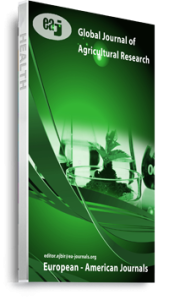The study analyzed the socio-economic determinants of adoption of bio-fortified Cassava among cassava farmers in Anambra State, Nigeria. Specifically, the study examined the socio-economic characteristics of the farmers, types and varieties of yellow cassava obtainable in the study area and the influence of socio-economic factors on the adoption of the bio-fortified cassava among the farmers. Multi-stage, purposive and simple random sampling techniques were used to select one hundred and twenty (120) Cassava farmers used for the Study. Data for the study was collected by administration of pre-tested questionnaire to the respondent farmers and analyzed using both descriptive (frequencies and means) and inferential statistics (maximum likelihood probit regression model). Among other results, the probit regression analysis of factors that influence the adoption of bio-fortified cassava among farmers reveals that education (3.1160) and access to planting material (5.0162) were positively significant at 1%, farm size( 1.1114) at 10% and membership of cooperative society (1.3424) and extension contact (3.134) were significant at 5% level. This implies that increases in these factors will lead to more adoption of bio-fortified cassava among the farmers in the study area. Based on the findings, the researchers recommend among others that government should endeavour to increase the multiplication of the planting material, make it available to farmers for production and create a sustainable market out let if optimum production is desired.
Keywords: Determinants, Socio-Economics, bio-fortified cassava, probit regression

